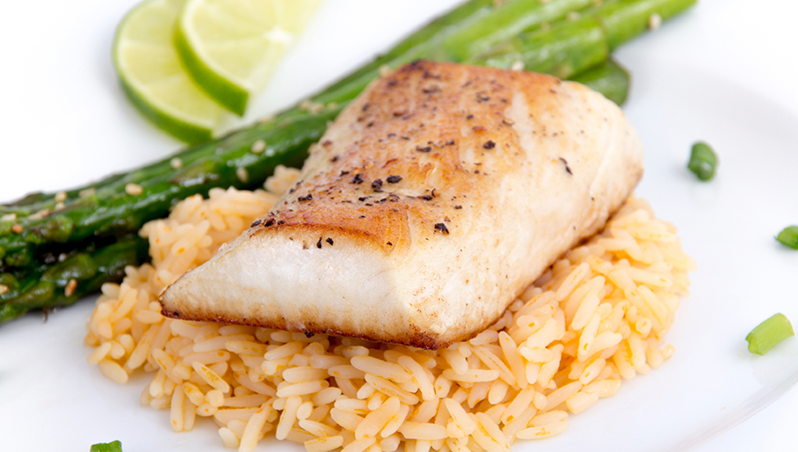 Frying is a simple cooking method used for food preparation worldwide and has been around for thousands of years going back as far as the Egyptians.
Frying is a simple cooking method used for food preparation worldwide and has been around for thousands of years going back as far as the Egyptians.
There are two types of frying, shallow frying and deep frying. Deep frying results in complete food immersion in fat. While shallow frying is a partial immersion of foods in a selected fat. Shallow frying is generally seen as the healthier option.
Extra Virgin Olive Oil (EVOO) has once again been proven to be a healthier choice of cooking oil for use in either of these frying methods. [Read my other article on Frying with Olive Oil]
A study has found that the healthiest way to fry fish is to use extra virgin olive oil, especially if this is done in the microwave.
The frying techniques, the nature of the oil used and the fish species have been shown to exert a great influence on the changes that take place during the process.
Researchers from University of the Basque Country in Spain have shown that the choice of cooking oil is hugely important owing to its impact on the lipid profile in the fish and on the possible generation of toxic compounds in the oil during frying, which can influence food safety and human health.
To conduct this research, fillets of European seabass (Dicentrarchus labrax) and gilthead seabream (Sparus aurata) were shallow-fried in a frying plan and in a microwave oven using extra virgin olive oil and refined sunflower oil.
The changes that took place in the lipid composition of the fish and of the frying oil were studied by means of Proton Nuclear Magnetic Resonance Imaging (H-1 NMR).
During the shallow-frying of the fish under domestic conditions, not only do the fish lipids migrate to the frying oil, the components of the oil are also transferred to the fillet of fish.
As a result, the composition of the oil used for frying is modified. It is enriched by the acyl groups (fatty acids) that are present in a higher concentration in the fish fat than in the original oil, and simultaneously it is depleted in the acyl groups present in a higher concentration in the original oil than in the fish fat.
So after having been used for frying, the extra virgin olive oil was richer in omega-3, omega-1 acyl groups, linoleic and saturated fats (from the fish) and poorer in oleic, which is the main acyl group in olive oil.
Likewise, after having been used for frying, the sunflower oil was richer in all the acyl group types (coming from the fish) except linoleic, which is the majority acyl group in sunflower oil.
Both types of oil were enriched by small amounts of cholesterol from the fish. Besides the migration of lipids during frying, because these oils are subjected to high temperatures (170 degrees Celsius) in the presence of oxygen, certain small-scale thermal oxidation may take place in them.
In the extra virgin olive oil used for frying fish, this thermal oxidation reaction did not occur as it is more degradation-resistant than sunflower oil.
Yet in the sunflower oil used for frying fish in the frying pan, secondary oxidation compounds (aldehydes) were formed; some of them are regarded as potentially toxic depending on the concentration in which they are found.
Therefore, in view of the results obtained and bearing in mind the generation of these compounds that are potentially harmful for health, the healthiest option for frying is to use extra virgin olive and fry in the microwave, researchers said.
[The study was published in the journal Food Research International.]